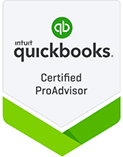Are you invested in more than one of the following? Hopefully, you have a multitude of investments and are well-diversified!
Cash
Cash is king! It allows you to take advantage of investment opportunities when banks are not lending.
Bonds
Debt security under which the issuer owes the holders a debt and depending on the terms of the bond is obliged to pay them interest and/or repay the principal at a later date.
Marketable Securities
Very liquid securities that can be converted into cash quickly at a reasonable price.
Mutual Funds
Investment vehicles that are made up of a pool of funds collected from investors to invest in securities such as stocks, bonds, money market instrument, etc. Mutual funds provide small investors access to professionally managed, diversified portfolios of securities that would otherwise be difficult to create with a small capital.
Exchange-Traded Funds (ETF)
Investment funds traded on stock exchanges. ETFs hold assets such as stocks, commodities or bonds and they trade close to their net asset value.
Real Estate Investment Trust (REIT)
Any corporation, trust or association that acts as an investment agent specializing in real estate and real estate mortgages.
Commodities
Raw materials or primary agricultural products that can be bought and sold.
Straddles
Simultaneous purchase of options to buy and sell a security or commodity at a fixed price, allowing the purchaser to make a profit whether the price of the security or commodity goes up or down.
Hedge funds
Collective investment scheme, often structured as a limited partnership to invest private capital speculatively to maximize capital appreciation.
end faq
While there is no guaranteed strategy for investing and achieving total success, here are some tips to consider while investing your money. It is very likely that you are one of the professionals in a higher marginal bracket rate, therefore it is very important to consider investment planning.
It Is All About Efficiency & Diversification
Investment efficiency is considered to be the best strategy used to maximize returns while minimizing the tax burden. There are two types of transactions, taxable transactions and tax deferred transactions. The taxable transactions accounts include interest earned on bank accounts and money market mutual funds. Tax deferred transactions include transactions in retirement accounts such as 401(k) and IRAs. As a general rule, tax-efficient investments should be made in the taxable accounts and investments that are not tax-efficient should be made in the qualified accounts.
Current income is usually taxable at the investor’s bracket rate. Dividends from stocks are often taxed at a lower preferential tax rate. Capital gains are either short-term or long-term. Short-term capital gains are taxed at the marginal tax bracket and long-term capital gains at the preferential long-term rate.
The prices of small and medium company stocks are generally more volatile and involve higher risks than large company stocks due to the reduced amount of resources allocated to optimum management. Usually stocks have a greater potential return than government bonds and treasury bills, but they also involve a higher risk.
Governments bonds and treasury bills, if held to maturity, are guaranteed as to payment of principal and interest. Even if treasuries are considered primarily free from credit risks, they are subject to other type of risks such as fluctuating interest rates that may cause a drop in the value of the bond. You must also consider that interest income from most bonds, except municipal bonds, are taxable and they are inefficient to an investor in a higher tax bracket. Tax-frees are a better choice within taxable accounts.
Income from municipal securities is generally free from federal and state taxes for the residents of the issuing state. While the interest income is tax-free, capital gains, if any, will be subject to taxes. If you are in a higher tax bracket, your income will also be subject to the federal Alternative Minimum Tax (AMT).
Among the most tax-inefficient investments are the high-yield bonds due to their high risk of default. Since they are primarily used as speculative instruments, they are considered short-term capital gains, which are taxed as the same rate as ordinary income.
Straight-preferred stocks are less volatile than the high-yield bonds but due to their bond-like qualities and high yields are taxed at the short-term capital gains rate. Any dividend income from straight-preferred stocks is taxed at the current income tax rate.
Between the more tax-efficient investments are convertible bonds, investment-grade corporate bonds, common stocks, convertible subordinate notes and real estate investments trusts.
Convertible bonds have lower yields and incur lower taxes, but they have the advantage that they can be held in a tax-deferred account.
The investment-grade corporate bonds are less risky and pay lower yields than convertible bonds, and they also have the advantage that they can be held in a tax-deferred account.
Common stocks are primarily taxed at the long-term capital gains rate and they can also be held in a tax-deferred account.
Hybrid instruments used in cross-border transactions such as convertible subordinate notes offer substantial tax benefits because they are classified as debt outside US and there is no tax on income from foreign investments that qualify as debt.
REITs offer tax-efficient exposure to the real estate market. At the trust level, REITs are tax-exempt provided they pay at least 90% of their profits to shareholders, while investors pay ordinary income tax on their dividends and on shares bought and sold. However, REIT shares are taxed only after they earn back the part of the investment used to finance real estate purchases and improvements, therefore an investor may time their tax liability for their REIT shares or in some years avoid taxes altogether.
Investing in foreign securities presents certain unique risks not associated with domestic investments, such as currency fluctuation and political and economic changes. This may result in greater share price volatility. These risks are heightened in emerging markets.
Investing in fixed income securities involves certain risks such as market risk if sold prior to maturity and credit risk especially if investing in high-yield bonds, which have lower ratings and are subject to greater volatility. All fixed-income investments may be worth less than original cost upon redemption at maturity. In general, when interest rates rise, bond values fall and investors may lose principal value.
As a general rule, it is best to invest in many different asset classes. Then invest in several different vehicles, in several different industries and in several parts of the globe. That way, if one area of economy goes down, you are diversified and your losses will be minimized. Think diversification, and you will not only do well with your healthcare business, but with your real estate and market investments, as well!
For more information and to find out how we can help you achieve your goals, please call us at (800) 477-5857 or fill out our "Quick Contact" form today! We serve the communities of Manhattan, New Hyde Park, Manhasset, Hauppauge, Syosset, New York, Garden City, Great Neck and nearby areas.






